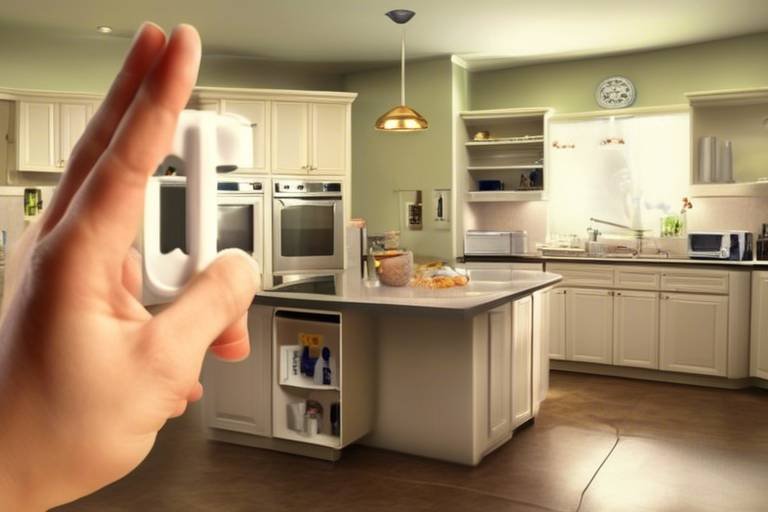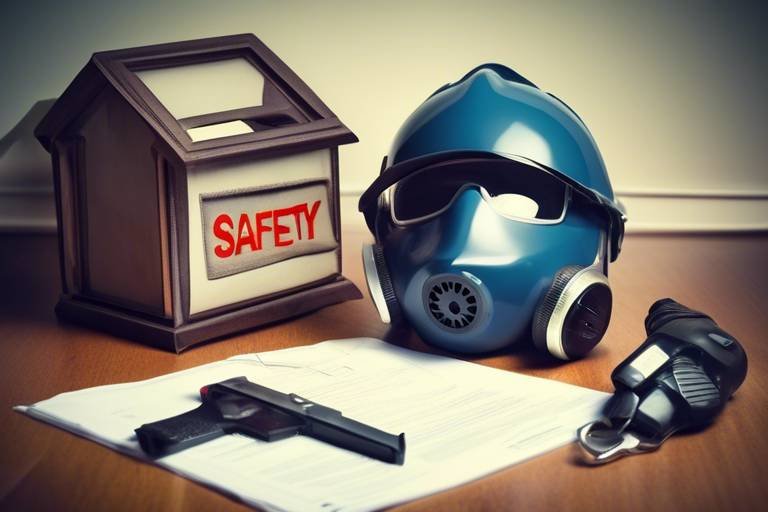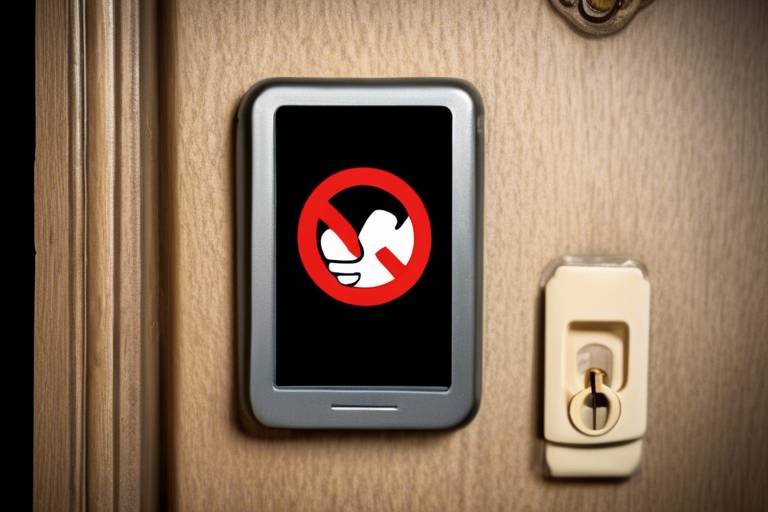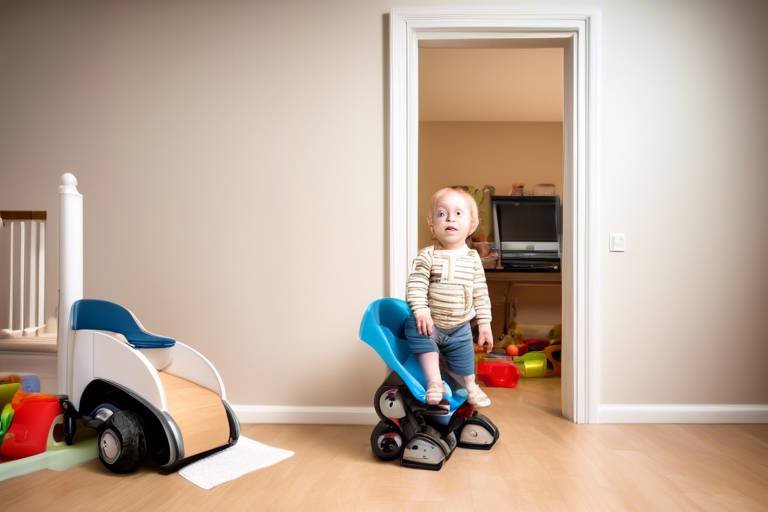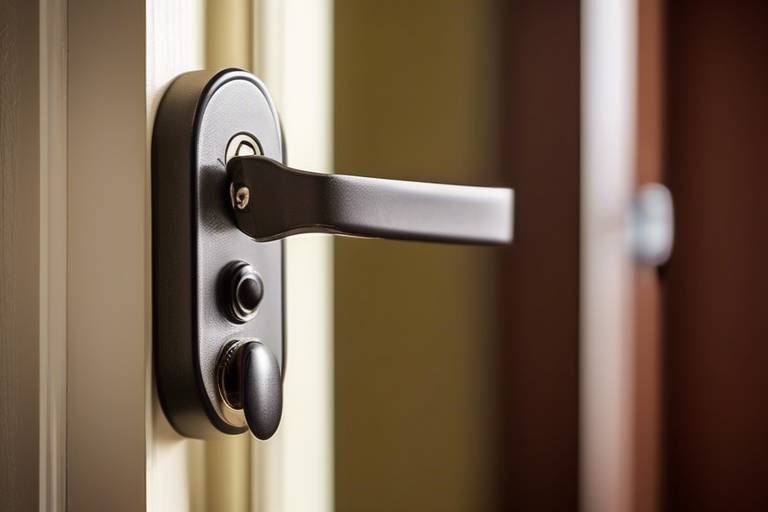Hardwood vs Carpet - Safety Aspects to Consider
When it comes to choosing flooring for your home, the decision between hardwood and carpet isn't just about aesthetics; it’s also about safety. Each option has its unique benefits and drawbacks, particularly concerning slip hazards, allergen control, and maintenance. Understanding these factors is crucial for creating a safe living environment, especially if you have children, elderly family members, or anyone with mobility issues. So, let's dive into the safety implications of both flooring types and help you make an informed choice!
First off, let’s talk about slip resistance. This is a biggie, particularly in high-traffic areas like hallways and kitchens. Hardwood floors are often smooth and can become slippery when wet, posing a risk for falls. On the other hand, carpet provides a more textured surface that can help prevent slips and falls, especially for little ones and older adults. But not all carpets are created equal; some can be quite plush and may still pose a risk if they become worn or matted down. It’s essential to consider the type of carpet and the maintenance it requires to keep it safe.
Now, let’s shift gears and talk about allergen control. If you or someone in your household suffers from allergies, this is a crucial consideration. Carpets tend to trap dust, pet dander, and other allergens deep within their fibers, making them a potential breeding ground for allergens. A study found that homes with carpets can have significantly higher levels of indoor allergens compared to those with hardwood floors. In contrast, hardwood floors are much easier to clean; a quick sweep or mop can eliminate dust and allergens, helping to maintain better indoor air quality.
Speaking of cleaning, let's evaluate the maintenance requirements of both flooring types. Hardwood floors require regular upkeep, including sweeping and occasional refinishing, to maintain their beauty and safety. On the flip side, carpets need frequent vacuuming and periodic deep cleaning to remove dirt and allergens. If neglected, carpets can become a health hazard due to the buildup of allergens and bacteria. In essence, while hardwood might require more initial investment, its low maintenance in the long run can be a safer choice for many households.
Different cleaning methods also play a significant role in safety. For hardwood, using a damp mop with a suitable cleaner can help avoid water damage while effectively removing dirt. For carpets, using a vacuum with a HEPA filter can trap allergens and prevent them from recirculating in the air. However, improper cleaning methods can lead to mold growth in carpets if they retain moisture. Therefore, understanding the best practices for cleaning each type of flooring is vital for maintaining a healthy and safe environment.
The wear and tear of each flooring type can also impact safety. Over time, hardwood can develop scratches and dents, which may pose tripping hazards if not addressed. Carpets, while generally more forgiving, can become matted down or develop loose fibers that can also lead to trips and falls. Regular inspections and timely repairs are necessary to ensure both flooring types remain safe for everyday use.
Let’s not forget about the impact on mobility. For individuals with mobility issues, the choice between hardwood and carpet can significantly affect their ability to move around safely. Hardwood floors can be easier to navigate with mobility aids like walkers or wheelchairs. However, for those who may be unsteady on their feet, the cushioning of carpet can provide a safer landing in case of a fall. Understanding the specific needs of your household is key to making the right choice.
Another essential consideration is fire safety. When comparing hardwood and carpet, it’s crucial to look at their fire resistance. Hardwood is generally less flammable and can provide a safer environment in case of a fire. In contrast, many carpets are treated with flame retardants, which can be a double-edged sword. While they may slow the spread of flames, some flame retardants can release harmful chemicals when burned. Understanding the fire safety characteristics of each flooring type can help you make a safer choice for your home.
Additionally, the thermal properties of hardwood versus carpet can influence fire safety and comfort. Hardwood tends to retain heat better, making it a cozy choice during colder months. However, in terms of fire safety, it’s essential to recognize that it can also ignite more quickly than carpet. Knowing how each material reacts to heat can guide your flooring choices, especially in fire-prone areas.
Finally, let’s explore the use of flame retardants in carpets compared to the natural properties of hardwood. While carpets often contain chemicals designed to slow down combustion, these substances can pose health risks. On the other hand, hardwood, being a natural product, does not have these additives, making it a potentially safer option in terms of indoor air quality and fire safety. Understanding these differences can help inform your flooring selections, especially if safety is a top priority.
- Which is safer for kids: hardwood or carpet? While carpets can provide cushioning, hardwood is easier to clean and maintain, reducing allergen buildup.
- Does hardwood flooring increase the risk of slipping? Yes, hardwood can be slippery, especially when wet. Using area rugs or non-slip mats can help mitigate this risk.
- Are carpets better for allergy sufferers? No, carpets can trap allergens, while hardwood floors are easier to keep clean and allergen-free.
- How often should I clean my hardwood vs. carpet? Hardwood floors should be swept regularly and mopped occasionally, while carpets need frequent vacuuming and periodic deep cleaning.

Slip Resistance
When it comes to flooring, might not be the first thing that pops into your mind, but it’s a crucial factor to consider, especially in high-traffic areas or homes with children and elderly residents. Imagine a bustling household where kids are running around, or an elderly family member is trying to navigate through the living room. The last thing you want is for them to take a tumble due to a slippery floor. So, how do hardwood and carpet compare in this regard?
Hardwood floors, while undeniably beautiful and stylish, can pose a slip hazard, especially when wet. A spilled drink or a bit of rain tracked in from outside can turn a sleek hardwood surface into a mini ice rink. On the other hand, carpets generally provide a better grip underfoot, reducing the likelihood of slips and falls. The fibers of the carpet create friction, which can help keep you steady, making it a more suitable choice for homes with little ones or seniors who might be more prone to accidents.
Let’s break it down a bit further. Here’s a quick comparison:
| Feature | Hardwood | Carpet |
|---|---|---|
| Slip Resistance | Moderate to Low | High |
| Maintenance of Slip Resistance | Requires regular cleaning to prevent slips | Regular vacuuming helps maintain grip |
| Ideal Environments | Living rooms, dining areas | Bedrooms, playrooms, and stairs |
In terms of maintenance, hardwood floors require a bit more attention to keep them safe. Regular cleaning is essential to prevent dust and spills from creating a slippery surface. A quick mop can help, but be careful not to use too much water, as excess moisture can exacerbate the slip hazard. In contrast, carpets are easier to maintain in this aspect; regular vacuuming not only helps keep allergens at bay but also preserves the grip of the carpet fibers.
So, what’s the bottom line? If safety is your top priority and you have young children or elderly individuals in your home, then carpet might be the way to go. However, if you prefer the elegance of hardwood flooring, just remember to take extra precautions, like using area rugs in high-traffic zones and ensuring spills are cleaned up promptly. Ultimately, the decision should align with your lifestyle and the specific needs of your household.
- Is hardwood flooring slippery? Yes, hardwood can be slippery, especially when wet. It's important to take precautions like using rugs and cleaning spills immediately.
- Can carpets help prevent slips? Absolutely! Carpets provide better traction, making them a safer option for homes with children or elderly residents.
- How can I make my hardwood floors less slippery? Consider using non-slip area rugs, applying anti-slip treatments, and maintaining a regular cleaning schedule to minimize hazards.

Allergen Control
When it comes to creating a healthy living environment, is a crucial factor to consider. Carpets, while cozy and inviting, can often act like a magnet for dust, pet dander, and other allergens. Imagine your carpet as a sponge, soaking up all those tiny particles that can trigger allergies and asthma. On the other hand, hardwood floors provide a starkly different scenario. They are much easier to clean and maintain, allowing for a more hygienic space that minimizes the risk of allergens lingering in your home.
For individuals suffering from allergies, the choice between hardwood and carpet can significantly impact their quality of life. Carpets can trap allergens deep within their fibers, making it challenging to eliminate them completely without diligent cleaning. In fact, studies have shown that carpets can harbor up to 100,000 dust mites per square meter! This is a staggering number when you consider that these tiny creatures thrive in warm, humid environments and feed on dead skin cells.
In contrast, hardwood floors allow for a more straightforward cleaning process. A quick sweep or vacuum can effectively remove dust and allergens from the surface, and periodic mopping can help maintain cleanliness. This ease of maintenance not only promotes a healthier indoor air quality but also reduces the time and effort needed to keep your space allergen-free.
To further illustrate the differences in allergen control between these two flooring options, consider the following table:
| Feature | Carpet | Hardwood |
|---|---|---|
| Allergen Trapping | High | Low |
| Ease of Cleaning | Difficult | Easy |
| Dust Mite Habitat | Ideal | Poor |
| Indoor Air Quality | Often Poor | Generally Good |
As you can see, the differences are quite pronounced. For families with young children or pets, the choice of flooring can have a significant impact on health and comfort. If you’re looking to create a space that minimizes allergens, hardwood flooring is a wise choice. It’s not just about aesthetics; it’s about fostering a healthier environment for you and your loved ones.
In summary, when weighing your options between hardwood and carpet, consider how each flooring type affects allergen control. While carpets may offer a soft feel underfoot, they come with a hidden cost to your health. Hardwood floors, with their superior ability to keep allergens at bay, might just be the safer and healthier choice for your home.
- What are the main allergens found in carpets? Carpets can trap dust mites, pet dander, mold spores, and pollen.
- How often should I clean my carpet to reduce allergens? It’s recommended to vacuum at least once a week and have professional cleanings every 6-12 months.
- Are hardwood floors better for allergy sufferers? Yes, hardwood floors are easier to clean and do not trap allergens like carpets do.
- Can I use rugs on hardwood floors? Yes, but opt for low-pile rugs that can be easily washed to minimize allergens.

Maintenance Requirements
When it comes to choosing between hardwood and carpet, understanding the for each type is crucial for ensuring long-term safety and cleanliness in your home. Both flooring options come with their own set of demands, and knowing what to expect can help you make an informed decision. For instance, hardwood floors are generally easier to clean and maintain compared to carpets. A simple sweep or vacuum followed by a damp mop can keep hardwood looking pristine. However, it’s essential to use the right cleaning products to avoid damaging the finish.
On the other hand, carpets require a bit more attention. They tend to trap dirt, dust, and allergens, which means regular vacuuming is a must. Ideally, carpets should be deep cleaned every 12 to 18 months to remove embedded grime and maintain a healthy indoor environment. This is particularly important for households with pets or allergy sufferers, as neglecting carpet maintenance can lead to a buildup of allergens that can compromise air quality.
Let’s break down the maintenance needs of both flooring types in a quick comparison:
| Maintenance Aspect | Hardwood Flooring | Carpet |
|---|---|---|
| Regular Cleaning | Easy; sweep/vacuum and damp mop | Requires frequent vacuuming |
| Deep Cleaning | Occasional refinishing | Every 12-18 months with steam cleaning |
| Allergen Control | Less allergen accumulation | Traps dust and pet dander |
| Durability | Long-lasting with proper care | Can wear down and stain over time |
It’s also worth noting that the maintenance of hardwood can be influenced by factors such as humidity and temperature. For example, excessive moisture can cause the wood to warp, while excessively dry conditions can lead to cracking. Therefore, it’s crucial to maintain a stable environment to prolong the life of hardwood floors.
In contrast, carpets can suffer from wear and tear due to foot traffic, which can lead to fraying and fading. Regular maintenance not only helps in keeping the carpet looking fresh but also in preventing accidents, as worn carpets can become slippery or develop tripping hazards.
In summary, both hardwood and carpet require a commitment to maintenance, but the nature and intensity of that maintenance vary significantly. By understanding these requirements, you can better assess which flooring type aligns with your lifestyle and safety needs.
- How often should I clean hardwood floors? - It's recommended to clean them weekly with a broom or vacuum, and damp mop as needed.
- Can I steam clean my carpet? - Yes, but it’s advisable to check the manufacturer’s guidelines first to avoid damage.
- What’s the best way to maintain indoor air quality with carpets? - Regular vacuuming and deep cleaning can help significantly reduce allergens.
- How can I prevent scratches on hardwood floors? - Use felt pads under furniture and avoid wearing shoes with hard soles indoors.

Cleaning Methods
When it comes to maintaining a safe and healthy living environment, understanding the for hardwood and carpet is essential. Each flooring type requires different approaches to ensure that they remain clean and free from hazards. For instance, hardwood floors are generally easier to clean and maintain compared to carpets, which can trap dirt, allergens, and spills. This difference in maintenance can significantly impact the overall safety of your home.
Hardwood floors typically require a simple routine of sweeping or vacuuming to remove dust and debris, followed by occasional mopping with a damp cloth or a hardwood floor cleaner. This straightforward method not only helps in keeping the surface clean but also minimizes the risk of slip hazards caused by spills. Regular cleaning can prevent the buildup of grime, which can lead to accidents, especially in households with children or elderly individuals.
On the other hand, carpets demand a more intensive cleaning regimen. Regular vacuuming is essential to remove surface dirt and allergens, but it often doesn’t reach the deeper layers where dust mites and pet dander may reside. To truly maintain a safe carpet environment, homeowners should consider professional deep cleaning methods, such as steam cleaning or shampooing, at least once a year. This process can effectively eliminate trapped allergens and bacteria, contributing to better indoor air quality.
Moreover, it's vital to address spills and stains on carpets immediately. Leaving them unattended can not only lead to permanent stains but also create a breeding ground for mold and mildew, which can pose serious health risks. In contrast, hardwood floors can often withstand spills better, as long as they are cleaned up promptly to avoid warping or staining.
To summarize, the cleaning methods for hardwood and carpet flooring have distinct implications for safety and hygiene. While hardwood floors allow for quick and easy maintenance, carpets require more effort and attention to detail to ensure they remain free from allergens and dirt. Understanding these differences can help homeowners make informed decisions about which flooring type best suits their lifestyle and safety needs.
- What is the best cleaning method for hardwood floors?
The best cleaning method involves sweeping or vacuuming regularly and mopping with a damp cloth or a suitable hardwood cleaner.
- How often should carpets be professionally cleaned?
It is recommended to have carpets professionally cleaned at least once a year, or more frequently if you have pets or allergies.
- Can spills on hardwood floors cause damage?
Yes, if spills are not cleaned up promptly, they can lead to warping or staining of hardwood floors.
- Are carpets safe for allergy sufferers?
Carpets can trap allergens, so they may not be the best choice for allergy sufferers unless regularly cleaned and maintained.

Wear and Tear
When it comes to flooring, the concept of is not just a fancy phrase; it’s a reality that every homeowner must face. Whether you opt for hardwood or carpet, understanding how each type of flooring stands up against daily use can significantly impact your long-term satisfaction and safety. Imagine walking into your home after a long day, only to find that your flooring is starting to show its age. Cracks in hardwood or matted carpet can turn a cozy space into a hazardous one, especially for children and the elderly.
Hardwood floors, while known for their durability, can still succumb to scratches, dents, and warping over time. High heels, pet claws, and even furniture can leave their mark. However, the beauty of hardwood lies in its ability to be refinished. A good sanding and a fresh coat of finish can breathe new life into tired boards. In contrast, carpet is often viewed as a softer, warmer option, but it comes with its own set of challenges. Over time, carpets can become worn, leading to uneven surfaces that can pose a tripping hazard.
To better illustrate how wear and tear affects both flooring types, consider the following table:
| Flooring Type | Common Issues | Maintenance Solutions |
|---|---|---|
| Hardwood | Scratches, dents, warping | Refinishing, regular cleaning, using area rugs |
| Carpet | Matted fibers, stains, uneven surfaces | Deep cleaning, replacing sections, regular vacuuming |
One of the most crucial aspects of wear and tear is how it affects mobility. A worn carpet can create uneven surfaces, making it difficult for individuals with mobility issues to navigate safely. On the other hand, while hardwood may provide a smoother surface, any scratches or dents can become slip hazards, especially when wet. This is why regular maintenance is essential for both types of flooring. Keeping surfaces clean and well-maintained not only enhances the aesthetic appeal but also plays a vital role in ensuring the safety of your living environment.
Ultimately, the choice between hardwood and carpet boils down to lifestyle, budget, and safety considerations. Are you ready to invest in regular upkeep, or do you prefer a low-maintenance option? By understanding the implications of wear and tear, you can make a more informed decision that suits your needs and keeps your home safe.
- What flooring option is better for homes with pets?
Hardwood is generally easier to clean and maintain, while carpets can trap pet hair and odors. - How often should I refinish hardwood floors?
Typically, hardwood floors should be refinished every 5-10 years, depending on wear. - Can I remove stains from carpets?
Yes, but the effectiveness depends on the type of stain and the cleaning method used. - Is carpet safer for children?
Carpet can provide a softer landing for falls, but it may harbor allergens.

Impact on Mobility
When it comes to flooring choices, the can be a game changer, especially for those with limited movement, such as the elderly or individuals with disabilities. Imagine trying to navigate through your home on a surface that either helps you glide effortlessly or hinders your every step. This decision could mean the difference between independence and needing assistance. Hardwood floors, while elegant and stylish, can often be slippery, especially when wet. This poses a significant risk of falls, which can be particularly dangerous for seniors. On the other hand, carpet provides a softer, more forgiving surface that can help cushion falls and reduce the risk of injury.
However, it's not just about safety; mobility is also influenced by how these surfaces interact with mobility aids like walkers and wheelchairs. For instance, wheelchairs tend to roll more smoothly on hardwood, but the risk of slipping is heightened. Meanwhile, carpets can create resistance, making it harder to maneuver. This can lead to frustration and fatigue for users. The texture and pile height of carpet can also play a significant role in this aspect. A low-pile carpet is generally easier to navigate than a plush, high-pile option.
In addition, consider the layout of your home. If you have a mix of both hardwood and carpet, transitions between these surfaces can be tricky. Uneven surfaces can lead to stumbles, which is why it's essential to use transition strips to create a smooth flow from one area to another. Below is a simple comparison table that highlights how each flooring type affects mobility:
| Flooring Type | Mobility Aid Compatibility | Slip Resistance | Cushioning Effect |
|---|---|---|---|
| Hardwood | Good for wheelchairs, but slippery | Lower slip resistance | Minimal cushioning |
| Carpet | Resistance for walkers, easier for some | Higher slip resistance | Good cushioning |
Ultimately, the choice between hardwood and carpet should take into account the specific needs of the individuals who will be using the space. If you or a loved one relies on mobility aids, it might be wise to consider a low-pile carpet for its balance of safety and comfort. On the flip side, if aesthetics and ease of cleaning are your top priorities, hardwood could be the right choice, provided you take precautions to enhance safety, such as using non-slip mats in high-traffic areas.
- Which flooring is better for seniors? Carpet is generally considered safer due to its cushioning effect, but hardwood can be easier for wheelchair users.
- Can I mix hardwood and carpet in my home? Yes, but ensure you use transition strips to minimize tripping hazards.
- What maintenance is required for each flooring type? Hardwood requires regular polishing and cleaning, while carpet needs frequent vacuuming and occasional deep cleaning.

Fire Safety
When it comes to choosing flooring for your home, is a crucial factor that often gets overlooked. Both hardwood and carpet have their own unique properties that can either enhance or compromise safety in the event of a fire. Understanding these differences can help you make a more informed decision about what to install in your living spaces. Imagine a cozy evening with friends, only to be interrupted by the smell of smoke; the last thing you want to worry about is whether your flooring is adding to the danger.
Hardwood floors are generally considered to be safer in terms of fire resistance. They are made from natural materials that do not easily ignite. In fact, hardwood can withstand higher temperatures compared to carpet. On the other hand, carpets can be made from synthetic fibers that are more flammable, posing a greater risk in the event of a fire. This is especially important in homes with children or pets, where accidents can happen.
To illustrate this point, let’s take a look at the thermal properties of both flooring types:
| Property | Hardwood | Carpet |
|---|---|---|
| Ignition Temperature | Higher | Lower |
| Flame Spread Rating | Better | Worse |
| Smoke Production | Less | More |
As you can see from the table, hardwood has a higher ignition temperature and a better flame spread rating. This means that in the unfortunate event of a fire, hardwood is less likely to catch fire quickly and will produce less smoke, allowing for more time to escape. On the flip side, carpets can emit toxic fumes that can be harmful and even deadly.
Another aspect to consider is the use of flame retardants. Many carpets are treated with chemical flame retardants to improve their fire resistance. While this may sound beneficial, these chemicals can also pose health risks over time, especially in poorly ventilated spaces. In contrast, hardwood floors do not require such treatments, making them a more natural and potentially safer option. It’s essential to weigh these factors when deciding on flooring materials, particularly in areas where fire safety is a concern.
In conclusion, when it comes to fire safety, hardwood flooring tends to be the safer choice compared to carpets. Its natural properties and higher resistance to ignition can provide peace of mind, especially for families with children or pets. Remember, every detail counts when it comes to safety—after all, your home should be a sanctuary, not a potential hazard.
- Is hardwood flooring fire-resistant? Yes, hardwood has a higher ignition temperature and is generally more fire-resistant than carpet.
- Do carpets have flame retardants? Many carpets are treated with flame retardants, which can pose health risks over time.
- What flooring is best for fire safety? Hardwood flooring is often considered the best option for fire safety due to its natural properties.

Thermal Properties
When it comes to choosing between hardwood flooring and carpet, one of the critical factors to consider is their . This aspect not only impacts the comfort level of your home but also plays a significant role in fire safety. Hardwood floors are known for their ability to conduct heat, which means they can feel cold underfoot during winter months unless radiant heating is used. On the other hand, carpet acts as an insulator, providing warmth and a cozy feel, making it a popular choice in colder climates. However, this insulating property can also be a double-edged sword when it comes to fire safety.
In terms of fire safety, hardwood has a natural advantage due to its composition. While hardwood does burn, it tends to be less flammable than synthetic carpets, which often contain materials that can ignite quickly. For instance, many carpets are treated with flame retardants to enhance their fire resistance. However, these chemicals can pose health risks and may not always be effective in preventing fire spread. To illustrate this, consider the following table comparing the thermal properties and fire safety characteristics of both flooring options:
| Property | Hardwood | Carpet |
|---|---|---|
| Heat Conductivity | High | Low |
| Insulation | Poor | Good |
| Flammability | Moderate | High (depending on materials) |
| Flame Retardants | No | Often present |
As you can see, while carpet provides better insulation, its flammability can be a concern, especially in homes with fireplaces or heat sources. On the flip side, hardwood may require additional heating solutions during colder months but offers a safer option in terms of fire risk. Understanding these thermal properties is crucial for homeowners, particularly those living in areas prone to wildfires or with strict fire codes.
Moreover, it's essential to consider how these materials react to heat over time. For example, hardwood can expand and contract with temperature changes, which might lead to gaps or warping if not properly maintained. In contrast, carpets can retain heat but may also absorb moisture, leading to mold growth if not adequately ventilated. Therefore, when selecting flooring, think about not just the immediate comfort but also the long-term implications on your home's safety and health.
- Which flooring option is better for homes with children?
Carpet may provide a softer landing for falls, but hardwood is easier to clean and less likely to harbor allergens. - Is hardwood flooring more expensive to maintain?
While initial costs can be higher, hardwood typically requires less frequent replacement than carpet, making it a long-term investment. - Can I install radiant heating under hardwood floors?
Yes, many hardwood floors are compatible with radiant heating systems, which can enhance comfort during winter. - How do I choose between hardwood and carpet?
Consider your lifestyle, the age of residents, and specific needs like allergies or mobility issues.

Flame Retardants
When it comes to flooring choices, the use of is a significant consideration, particularly for homeowners who prioritize safety. Carpets often contain various chemical treatments designed to reduce flammability. These can be effective in slowing down the spread of fire, but they also raise some concerns regarding indoor air quality and potential health risks. In contrast, hardwood floors are made from natural materials that typically do not require such treatments, making them a more environmentally friendly option.
It's crucial to understand how these flame retardants work and the implications they may have on your home. For instance, many carpets are treated with chemicals like PBDEs (polybrominated diphenyl ethers), which have been linked to various health issues, including hormonal disruptions and neurodevelopmental problems in children. The presence of these chemicals can pose a risk, especially in homes with young kids or pets who spend a lot of time on the floor. On the other hand, hardwood floors, being naturally fire-resistant, do not emit these harmful substances, making them a safer choice for families concerned about chemical exposure.
Moreover, the effectiveness of flame retardants can diminish over time. As carpets wear down and undergo cleaning, the effectiveness of these treatments may decrease, potentially increasing the risk of fire hazards. This is particularly important to consider in high-traffic areas where wear and tear are more pronounced. Conversely, hardwood floors maintain their natural fire-resistant properties throughout their lifespan, providing a consistent level of safety.
To summarize, when evaluating flooring options, consider the following:
- Health Risks: Be aware of the potential health risks associated with flame retardants in carpets.
- Longevity: Hardwood floors retain their natural fire resistance over time, while carpets may lose their flame-retardant properties.
- Environmental Impact: Choosing hardwood can reduce exposure to harmful chemicals found in treated carpets.
Ultimately, your choice between hardwood and carpet should align with your safety priorities, health considerations, and lifestyle needs. Understanding the implications of flame retardants can help you make a more informed decision that ensures a safer living environment for you and your loved ones.
- Are flame retardants harmful to health? Yes, some flame retardants have been linked to health issues, particularly in children and pets.
- Do hardwood floors need flame retardants? No, hardwood is naturally fire-resistant and typically does not require additional treatments.
- How can I improve fire safety in my home? Consider using hardwood flooring, installing smoke detectors, and having a fire extinguisher readily available.
Frequently Asked Questions
- What are the slip resistance differences between hardwood and carpet?
When it comes to slip resistance, carpet generally provides better traction compared to hardwood. This is especially important in homes with children or elderly residents who may be more prone to falls. However, hardwood can be treated with anti-slip coatings to enhance safety, making it a viable option if you're cautious.
- How do hardwood and carpet affect indoor allergens?
Carpet can trap dust, pet dander, and other allergens, making it a less favorable choice for allergy sufferers. On the other hand, hardwood floors are easier to clean and maintain, significantly reducing the accumulation of allergens and improving indoor air quality.
- What are the maintenance requirements for hardwood versus carpet?
Hardwood floors require regular sweeping and occasional polishing, while carpets need frequent vacuuming and periodic deep cleaning to remove dirt and allergens. Proper maintenance is crucial for both types to minimize hazards and ensure a safe living environment.
- How do cleaning methods differ for hardwood and carpet?
Cleaning hardwood typically involves using a damp mop with a suitable cleaner, while carpets often require vacuuming and steam cleaning. Each method has its own set of best practices to follow to maintain safety and cleanliness, preventing accidents and health issues.
- How does wear and tear affect the safety of hardwood and carpet?
Wear and tear can lead to hazards such as splintering in hardwood or fraying and tearing in carpets. Understanding how each type can deteriorate over time is crucial in making an informed decision about which flooring will remain safe and functional in your home.
- What impact does flooring choice have on mobility?
The choice between hardwood and carpet can significantly influence mobility, especially for individuals with mobility issues. Carpet can provide a softer surface, but it may also hinder movement. In contrast, hardwood allows for easier navigation, making it a better option for those who need assistance.
- Is one flooring option safer in terms of fire safety?
Generally, hardwood is considered safer than carpet when it comes to fire safety. Hardwood has natural fire-resistant properties, while many carpets contain synthetic materials that can be more flammable. Understanding these differences is essential for making a safer flooring choice.
- How do the thermal properties of hardwood and carpet influence fire safety?
The thermal properties of hardwood tend to help in fire resistance, as it doesn’t ignite as easily as carpet. This can provide additional safety in the event of a fire, making hardwood a more reliable choice in fire-prone areas.
- Are flame retardants used in carpets a concern?
Yes, many carpets use flame retardants to enhance safety, but some of these chemicals can pose health risks. It's essential to consider the safety of the materials used in carpets versus the natural properties of hardwood when making your flooring decision.









